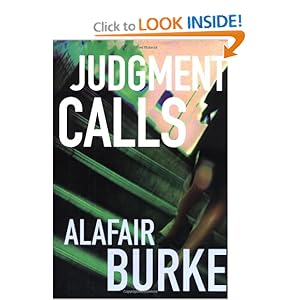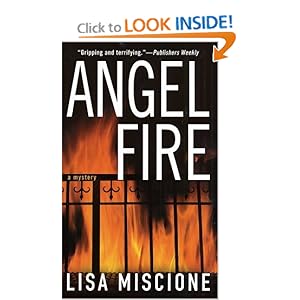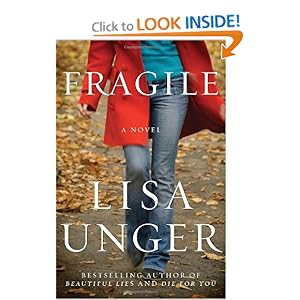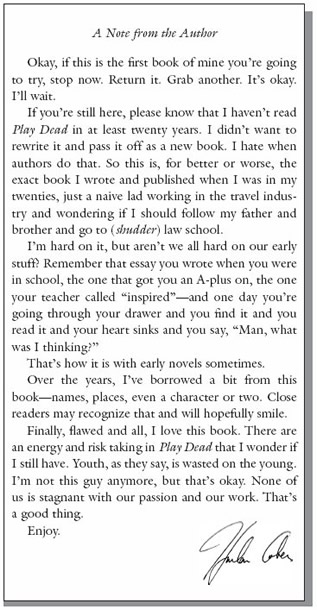by JT Ellison
My husband and I just celebrated our 15/18th anniversary. Why the two dates? We married on the 3rd anniversary of our first kiss. Which was one day after we met. We didn’t waste a lot of time falling in love, we sort of did it immediately. Honestly, he could have suggested that we run off to Bora Bora and get married a week later, and I’d have said, “Just hang on a moment, dear, while I grab my favorite bikini.”
As it happens, my sweetly practical husband wanted to wait until we graduated from grad school to get married. A wise, sage man he is – the allure of knowing our lives were already intertwined, that we would work and love together for years to come, was a heady aphrodisiac. Not that I’m competitive or anything, but the desire to impress him drove me to new heights with my schoolwork—not to mention my full time job—and it was a good couple of years.
We were heavy into the political scene at the time—it looked like he was going to be the candidate and I would be the campaign manager. This was a shock to our professors, who thought I’d make a decent candidate myself, until they tried filming me giving a speech and the wheels came off the wagon. Me and Public Speaking were not a marriage made in heaven.
Me and Randy? We are.
So there’s a place we always go to celebrate, and a bartender who’s a friend, and when we all raised out glasses to toast, she said,” Did you ever imagine you’d be where you are today when you got married?”
Which was hysterical, because Randy and I had just had that talk a few hours before.
The short answer is: “No.” The long answer is, “Um, no way.”
Now, Randy runs his own market research firm. That wasn’t a huge surprise, because he’s damn good at public opinion polling, and a natural leader, so I always pushed for him to get out from under the man and run his own shop. He’s been at it for a couple of years now, and it’s a lot of fun. A lot of work, but he loves it.
Me, an international author? Now, that’s a surprise. If you’ve been here from the beginning at Murderati, you’ve been able to track my career from its inception, literally. So you know I’m not kidding when I say this has rather fallen in my lap, and I’m doing my best to manage the ramifications. Two books a year is fun, but stressful, and I’m so committed to making each book better than the last that I sometimes lose the forest for the trees. But things are good, and we’re both doing what we love.
If I’d had any inkling that all this was going to happen, would that change the way I feel about it? Absolutely. I’m a huge fan of letting life unfold, of climbing the mountain, not appearing at the pinnacle. I don’t want to know what’s going to happen tomorrow. We’re at a completely blissful moment in our lives. All is well work wise. We love and respect each other. We have our parents. We have a roof over our heads and money set aside for later and the freedom to travel. We are blessed.
So when I had an opportunity to have a reading done on my future, I balked.
You see, the new book involves the occult. And through the media promotion, I’ve had the great pleasure of meeting a V.I.P.—Very Important Pagan—in the Nashville community. I interviewed a few Wiccans for the book, and did a ridiculous amount of research into their ways, and the ways of the Pagans, the Stregheria, Goths… hell, even Buddhists. Through all of that, I’ve seen many ways of predicting the future, learning the future, and altering the future.
And that, more than anything, frightens me.
I don’t want to know the future. I love that sense of uncertainty that permeates my life. Will the book do well? I don’t know. Could I ask one of my friends to look into the matter and tell me, or give me a spell or a blessing to alter its course? Yes, I could, but I’d never do it. I’m such a firm believer in what happens, happens for a reason, that the idea of actually knowing what’s going to go down freaks me out of a bit. Good, bad or indifferent, my life is unfolding in ways I could never expect. I don’t want to mess with that.
Now, all that said, I do believe in signs. Like the crazy fortune cookie I had once that said “The best advice comes from a child,” just a few days before Lee Child became my ITW mentor. Or the fact that lately, I’ve been besieged by grasshoppers. They land on me when I’m outside, they show up on my deck, I even had one in my cart at Target the other day. If I were a practicing Pagan, I would assume (and be utterly delighted) that I’d been chosen by the Goddess and that she was speaking to me – in this case, the Goddess Aurora, who asked Zeus to grant immortality to her lover, but neglected to ask for youth as well, and since Zeus was a right old bastard with a sick sense of humor, he granted her wish. Her lover, Tithonus, Prince of Troy, was made immortal, but continued to age. She finally turned him into a grasshopper.
The Gods and Goddesses love to send signs. They may appear in person, or as something else. They carry a message, or a blessing, or simply want to check on things. I like that.
Then again, I’m also working on a story about a grasshopper, so the non-believers could say I’m just finding them more often because they’re foremost in my mind…
I think that I prefer the former, for the research I’ve done into Aurora shows her as the Goddess of rebirth. Considering the tattoo on my ankle is two Chinese figures, strength and rebirth (which combines to be the Phoenix Rising) and I’ve reinvented myself to become an author, it’s not such a stretch that she’d be calling to me, now is it?
So my question for you today, folks, is this: If you could see into the future, would you? Do you want to know what’s coming down the pike, or would you rather sit back and let things unfold as they will? Have you ever had a reading done? I know our Pari is handy with the Tarot cards, and our Alex certainly treads through the otherworld with her novels, and I assume, her research. What about you?
Wine of the Week: Sadly, one of the Australian vineyards that we frequent (namely, through a yummy wine called Marquis Philips McLaren Vale Shiraz ) is going out of buisness. They has a lot of wine that needs to be purchased. So here’s a link to the story, in the hopes that a benefactor may be found.
P.S. The wonderful folks at Exaclair, makers of Clairfontaine and Quo Vadis, the notebooks and planners I use (and will talk more about in 2 weeks) did me the honor of a feature in their Writer’s Project. Click here to take a look.
 MAN STYStealing blatantly from my hero, William Goldman (whose book you’ll see prominently displayed), this is what I refer to as my pit. And, believe me, it really is a pit. My wife calls it my Man Sty.
MAN STYStealing blatantly from my hero, William Goldman (whose book you’ll see prominently displayed), this is what I refer to as my pit. And, believe me, it really is a pit. My wife calls it my Man Sty. THE LEFT SIDE OF HEAVENThis area is directly to my left as I sit at my desk. I like the bookshelf there so that I can reach over, grab a book at random and get inspiration from my favorite authors. When I’m low on writing energy, there’s nothing better than reading someone else’s work.
THE LEFT SIDE OF HEAVENThis area is directly to my left as I sit at my desk. I like the bookshelf there so that I can reach over, grab a book at random and get inspiration from my favorite authors. When I’m low on writing energy, there’s nothing better than reading someone else’s work. MY BELOVED CHILDRENHere we have an old Fender Bullet Strat that’s worth about ten bucks, which I bought during the Fender CBS years (I worked for CBS at the time as a script typist). The black one is a Gibson Les Paul, which is on loan from my daughter. And to the right of that is my new Paul Reed Smith Tremonti, which I absolutely love.
MY BELOVED CHILDRENHere we have an old Fender Bullet Strat that’s worth about ten bucks, which I bought during the Fender CBS years (I worked for CBS at the time as a script typist). The black one is a Gibson Les Paul, which is on loan from my daughter. And to the right of that is my new Paul Reed Smith Tremonti, which I absolutely love. LOOK AT THE SIZE OF THAT HEAD!This is a reverse shot—and what I look like most of the time I’m writing. Spiffy glasses, eh?
LOOK AT THE SIZE OF THAT HEAD!This is a reverse shot—and what I look like most of the time I’m writing. Spiffy glasses, eh? MY BRAIN ON DRUGSThis is my real pit. Where I keep all of my files, all of my notes, all of my ideas… It’s my portable office. I try to carry it with me wherever I go.
MY BRAIN ON DRUGSThis is my real pit. Where I keep all of my files, all of my notes, all of my ideas… It’s my portable office. I try to carry it with me wherever I go. JT’s INSPIRATIONOkay, this shot is for JT, who insisted. If I got embarrassed easily, I’d be very red-faced right now. Because, let’s face it, I’m really baring my soul here.
JT’s INSPIRATIONOkay, this shot is for JT, who insisted. If I got embarrassed easily, I’d be very red-faced right now. Because, let’s face it, I’m really baring my soul here.


















































